Among rechargeable batteries, lithium-ion batteries (LIBs) play an important role in many fields of energy storage systems. However, the price of lithium batteries are getting higher and higher. Many company start to develop Sodium Ion Battery, since thee big advantage in price and lifespan.
This article will take you to know details of Sodium Ion Battery.
What Is Sodium Ion Battery?
The sodium-ion battery (NIB or SIB) is a type of rechargeable battery. similar with lithium-ion battery. But using sodium ions (Na+) as the charge carriers.
Battery Structure
Below picture shows a schematic diagram of a sodium-ion battery. The structure of sodium-ion batteries is similar to that of lithium-ion batteries.
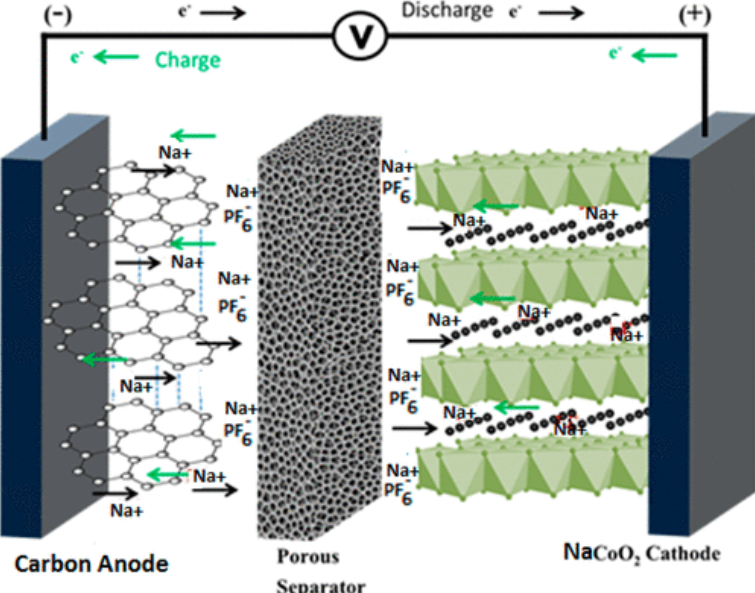
The working principle and cell construction are almost identical with lithium-ion battery types. But sodium compounds are used instead of lithium compounds.
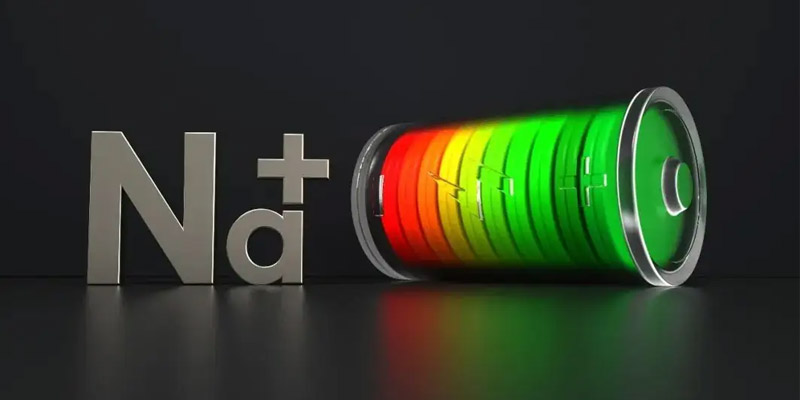
What Is The Working Principle Of Sodium Ion Battery?
Sodium-ion battery cells consist of a cathode based on a sodium containing material, an anode (not necessarily a sodium-based material) and a liquid electrolyte containing dissociated sodium salts in polar protic or aprotic solvents.
During charging, sodium ions are extracted from the cathode, and inserted into the anode while the electrons travel through the external circuit.
During discharging, the reverse process occurs where the sodium ions are extracted from the anode. And re-inserted in the cathode with the electrons travelling through the external circuit doing useful work.
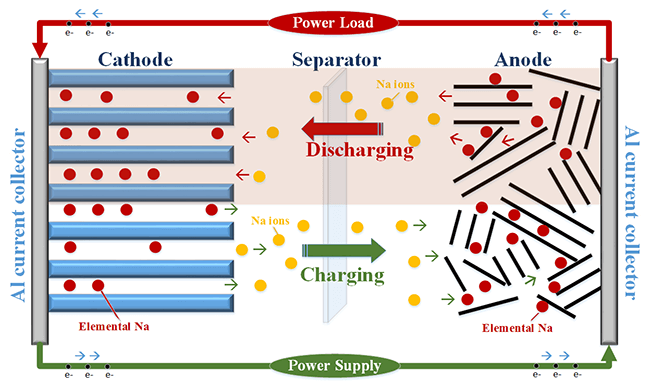
What Is The Unique Advantage Of Sodium Ion Battery ?
Price advantage
Just as statistics data of statista, with the increasing demand for lithium batteries, the price of lithium carbonate as a raw material has risen wildly.In the end of 2021, the price of Lithium Carbonate are reach $17,000/Ton.
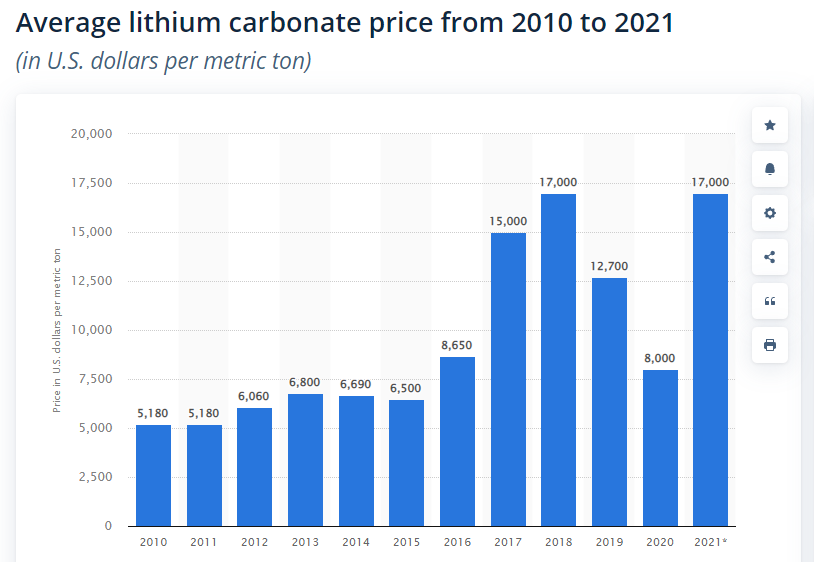
However, the price of Sodium only need $2000/Ton.
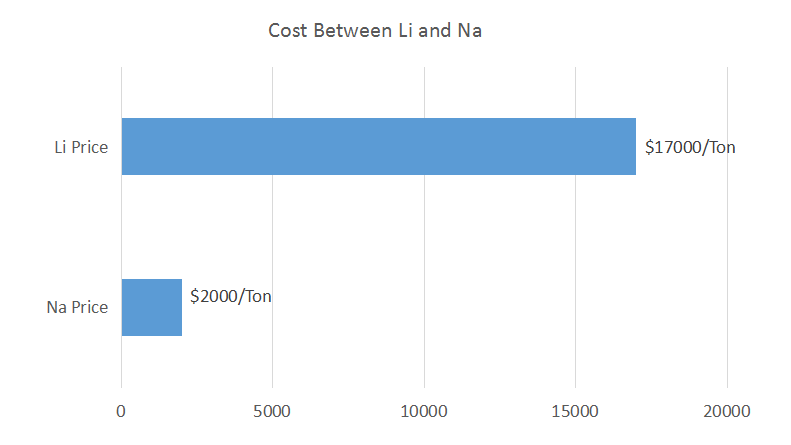
The raw material price are related with the content in the crust. According to testing and statistical analysis, The sodium content is 1351 times (23000/17) than the lithium content. That also is the reason why the price of lithium are expensive than sodium.
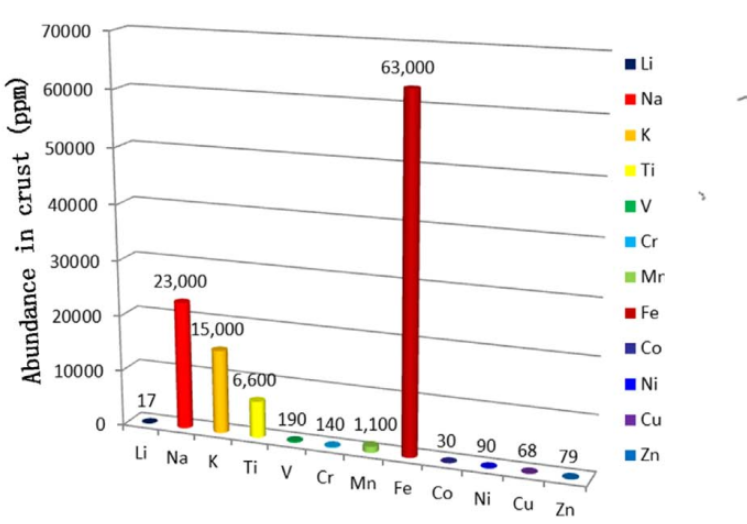
So for final cost of batteries , the Sodium ion batteries will reduce 30%~40%, compare to Lithium ion batteries. Below picture to show the details.
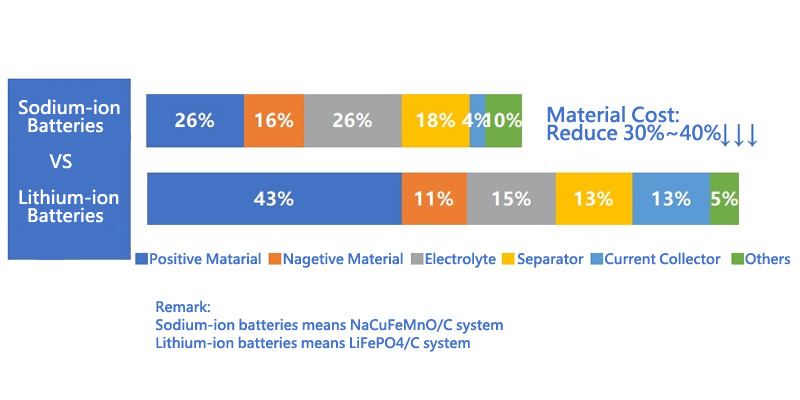
Environmentally friendly
There nearly no heavy metal elements can pollute the environment, Sodium ion battery is completely safe and environmentally friendly.
We can foresee that sodium-ion batteries will become sustainable low-cost alternatives to lithium-ion batteries for all kinds applications.
Such as low speed electric vehicles and large-scale energy storage (ESS).
Increasingly shifting to wind, solar and hydropower, they rely on battery energy storage for uninterrupted, all-weather performance.
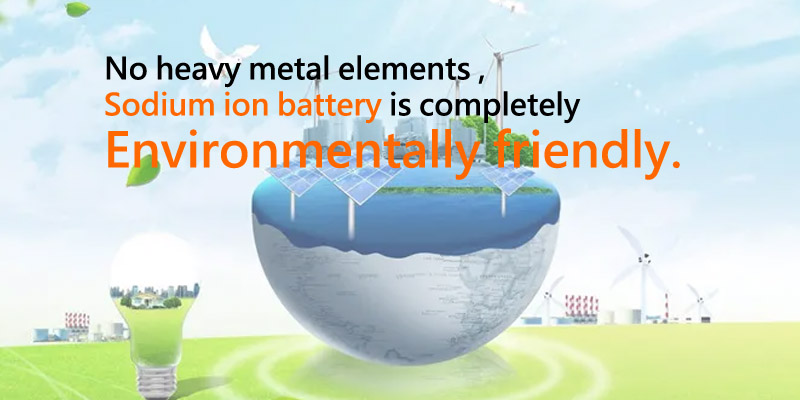
More Safety
According to the research of the Jerry Barker team of Faradion UK, The Sodium-ion batteries can actually be safely discharged to 0 V (true 0% SOC). Which can obviously reduce the danger probability of the battery during transportation and storage.
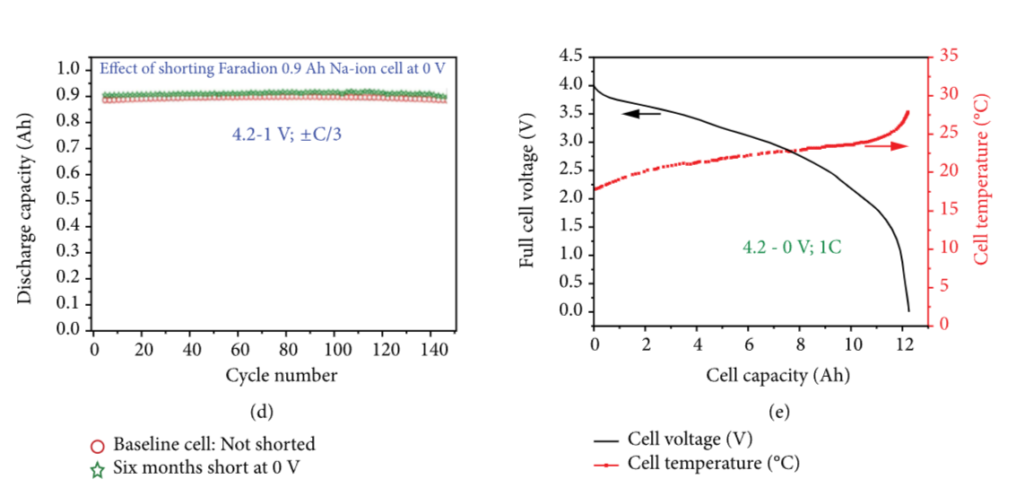
Excessive discharge (below 0% SOC) of graphite-based Li-ion batteries can significantly reduce the cycle life of the battery.
Or may lead to fire/explosion due to internal short circuit caused by the deposition of metallic copper on the cathode.
But for Na-ion batteries, the anode uses a lighter and cheaper aluminum current collector substrate, which enables it to be safely discharged to 0 V.
And helps to improve the specific energy and reduce the cost of Na-ion batteries.
The ability of sodium-ion batteries to safely discharge to 0 V will benefit not only consumers, but manufacturers of sodium-ion batteries in many ways.
How Many Kinds of Sodium Ion Battery Are There?
NaMnO2
Hina Energy are specially develop a NaMnO2 battery(Sodium Ion Battery, NaNi0.12Cu0.12Mg0.12Fe0.15Co0.15Mn0.1Ti0.1Sn0.1Sb0.04O2), the typical parameter as below,
(1) Working voltage: 3.2V.
(2) Working temperature: -40℃~80℃.
(3) Cycle life: ≥4500 cycles@83% (2C/2C).
(4) Energy density: ≥145Wh/kg.
(5) Rate performance: 5C capacity ≥ 90% of 1C capacity.
(6) Storage performance: Stored at room temperature for 28 days with charge retention ≥ 94% of rated capacity, and charge recovery ≥ 99% of rated capacity.
Na3V2(PO4)2F3
Alistore-European research agency built an 18650 cell using an Na3V2(PO4)2F3 cathode and a hard-carbon anode. And it demonstrated 75 Wh/kg and 4000 cycles at the 1C rate. But this Sodium battery are still under development.
Na2FeFe(CN)6
Alarch agency specially developed a Sodium ion batteries, who’s composition is NaxFe[Fe(CN)6] with x>1.9.
This material is ideal as performance positive electrode in sodium-ion batteries and can be paired against anode materials which do not contain sodium.
Ideal storage is under inert conditions in order to maintain quality over the longer term. Nominal voltage 3.25 V on average, capacity ~160 mAh g-1.
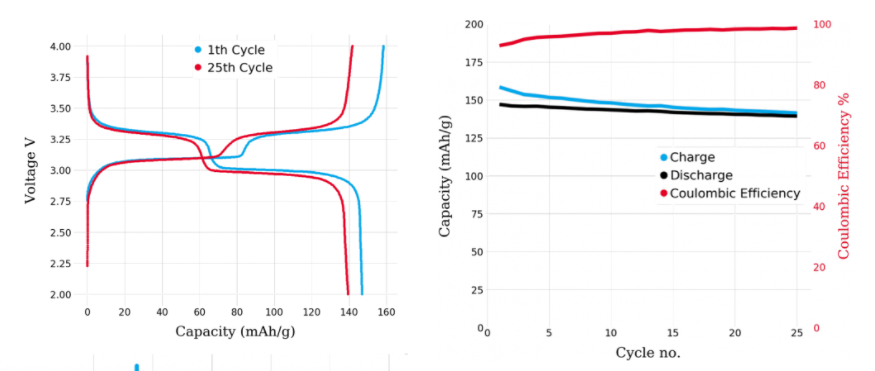
Na2Fe2(SO4)3
What Is The Application Of Sodium-ion Battery?
Due to the lower cost, many cycles, and basically no pollution to the environment, sodium batteries will eventually be favored by energy storage and low-speed vehicles. Typical applications are as follows.
1. Solar Energy Storage System
2. Home Energy Storage System
3. Low Speed Vehicle
4. Electric boat
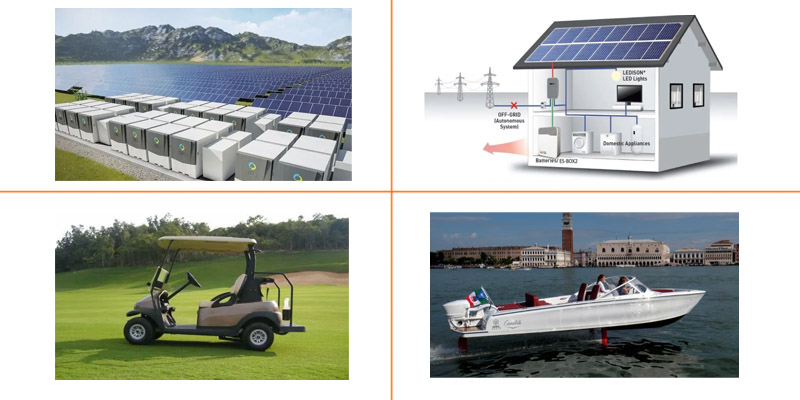
Who Makes Sodium Batteries? Top 3 manufacturer.
Faradion
Faradion Energy is an British company. Who was started in 2011, by Dr Jerry Barker, Dr Chris Wright and Ashwin Kumaraswamy, to develop and bring to market sodium-ion technology.
It was founded that sodium-ion batteries are cheaper and safer than lithium-ion batteries. But a higher energy density and a wider operating temperature range than other batteries.
With this combination of cost, safety and performance Faradion’s sodium-ion batteries are now being manufactured by our licensees and partners to demonstrate the benefits of the technology in real-world applications.
Natron Energy
Natron Energy is an American company. Who’s solutions for these challenging industrial power and grid storage applications.
Its sodium-ion cells are based on Prussian blue electrodes that enable unique power, life, and safety: full discharge and recharge in just minutes. And up to 50,000 deep discharge cycles from a nonflammable, fault tolerant system.
Below is the performance of Natron Energy, also you can get the spec here.

CATL
CATL released the first-generation sodium-ion battery in mid-2021. He plans to establish a basic industrial chain by 2023.
CATL said at the launch that it has been working on research and development materials for sodium-ion battery electrodes for years.
The company says its first-generation sodium-ion batteries, which can achieve energy densities of up to 160Wh/kg, and is now targeting more than 200Wh/kg.
Sodium Battery VS Lithium Battery VS Lead Acid Battery
Battery Performance
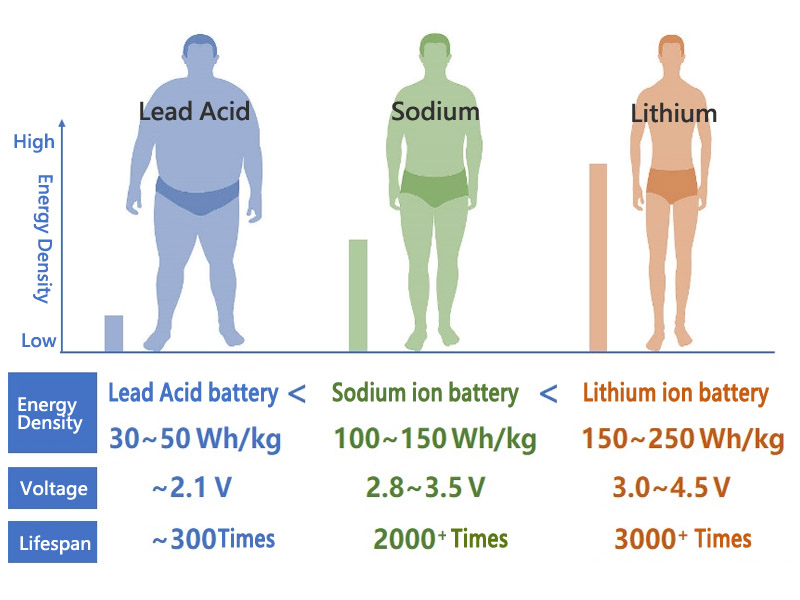
Are There Still Something That You Want To Know?
I really hope you enjoyed my complete guide to Sodium Ion Battery.
Now I’d like to hear from you:
Do you have plan to try Sodium Battery ? Or if there are still something that we need talk but did not addressed?
Also, I plan on adding even more helpful resources to this article soon.
So let me know if you have any ideas or suggestions.
Either way, let me know by leaving a comment below right now.


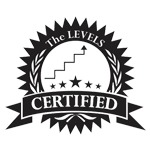



2 Responses
Great summary I have to say. Working in materials/ minerals space I’d like to see how much typically of each element or component … particularly Na (lithium is typically 10$ of the mass I think in ELB), and obviously there is range of metals But a typical weight of cathode and anode), particularly around prussian blue used in the cathode. I guess I can estimate backwards but for you to have estimated costs you might have the weight …
Yes, this is also the reason why many manufacturers try to develop sodium ions, the cost is low. Later if Na-ion is available, I will post a price comparison based on Na-ion and Li-ion.